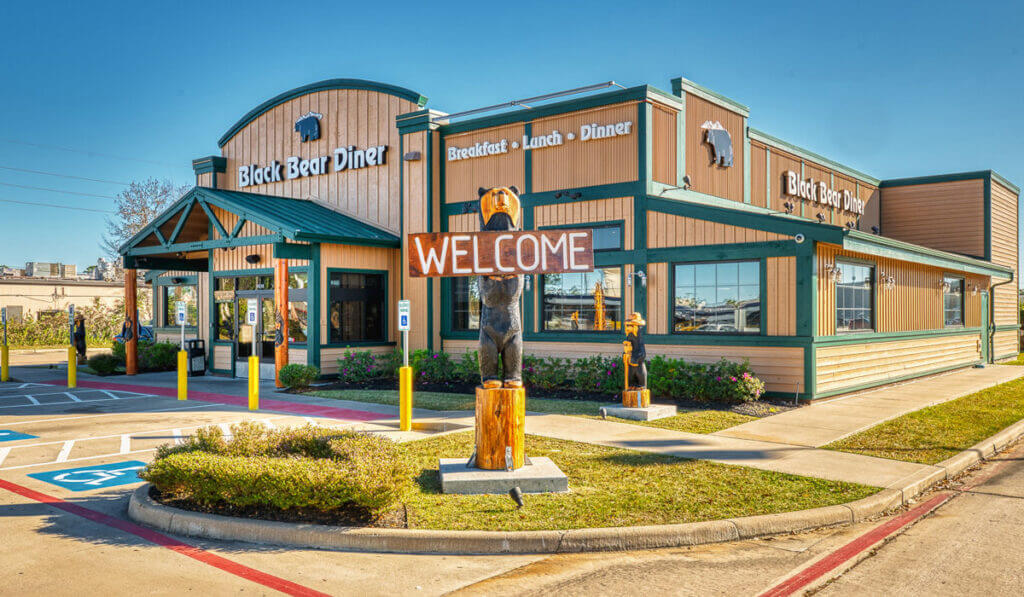Black Bear Diner’s 33 franchises operate 91 of its restaurants, with the company running 65 of them.
After a pause in franchise development coming out of the COVID-19 pandemic, when CEO Anita Adams said the focus was “all about cash preservation,” Black Bear Diner is fully in growth mode again. The Redding, California-based chain opened 10 new locations in 2022, added seven more last year and is set to open at least 14 this year after signing two new franchisees.
Known for its breakfast and lunch offerings but also serving dinner, Black Bear has 156 locations open. It plans to add five corporate-owned diners in Texas this year to go along with several franchise locations, including four units being developed in Kansas, Arizona, Nevada and Colorado by LVP Restaurant Group, which also counts Dunkin’ and Del Taco in its portfolio.
“Portability really has been answered,” said Adams of Black Bear’s ability to succeed outside its home state, where more than 50 of its restaurants are located. The company will seed a new market with company units before franchisees being developing. “We’re investing alongside of them, and they appreciate that,” she said.
Black Bear, which is owned by private equity firm GreyLion, remains committed to its full-service dining model, and it’s the experience customers get when they visit that helps the brand stand out in an increasingly crowded breakfast space, said Adams. Like most restaurants, Black Bear saw a spike in takeout and delivery orders in recent years, and its off-premises channels have settled to about 15 percent of sales.
Anita Adams joined Black Bear Diner as its chief financial officer in 2017 and became CEO in January 2020.
“And we’re comfortable with that,” said Adams as she emphasized being “fiercely protective” of the Black Bear experience. “We won’t sacrifice that for off-premises.”
The company made additional investments in to-go packaging and technology, including a new kitchen display system, and adjusted its kitchen design to allow employees to use two makelines when needed. Pickup windows inside its lobbies help alleviate some congestion.
“We’ve taken the last couple of years to look at how to better address throughput, especially on weekends,” she said, and after a test of handheld ordering tablets for servers the brand is rolling out their use across the system this year.
Construction costs shot up 25 percent because of inflation, and in response Black Bear engineered a new 4,600-square-foot prototype to cut some space out of the front and back of the restaurant but keep the same number of seats, 155, to ensure operators can accommodate the robust dine-in business. The cost to open a Black Bear Diner ranges from $1.5 million to about $2 million.
Menu innovation, meanwhile, brought the introduction of a sandwich melts promotion, and the brand “plays with LTOs” such as a fork-and-knife biscuit, said Adams. “This past year, we ideated around value and a lower price point, but one that’s still profitable for franchisees,” she said, noting an average check of $16.50. Average gross sales for franchise restaurants hit $2.7 million in 2022, up from $2.3 million in 2021.
The brand is studying markets in Florida as it continues to push deeper into other territories outside California. “We’re bullish. And we’re very proud,” said Adams. “It’s been a tough four years and this brand is resilient.”


